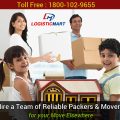As deputy editor at Econsultancy I’m occasionally called upon to help shortlist the many excellent entries we receive for our annual awards, The Digitals.
The consistently high quality of the entries makes it a very difficult job, but it’s made even trickier when submissions are written in such a way that it’s difficult to understand what the campaign actually achieved.
That’s my diplomatic way of saying that some of the entries we receive are poorly written.
And obviously if the judges struggle to comprehend a campaign’s objectives and outcomes, it will negatively impact it’s chances of winning any accolades.
So to maximise your chances of glory at this year’s Digitals, we’ve put together some simple tips to help you write an entry that is itself worthy of an award.
1. Cut out the jargon
Marketers use jargon like a security blanket, as they feel that buzzwords ensure they sound like they know what they’re talking about.
Unfortunately it also makes it difficult to understand what they’re talking about.
This is a common problem with awards entries and it means the judges have to cut through a layer of jargon to work out what a campaign actually involved.
Remember that the judges will be reading a lot of different case studies and it’s vitally important to make yours easy to understand, so please write in plain English.
2. Fill out the form correctly
Potentially successful entries are often let down simply by not completing every part of the form.
A common cause is that entrants have simply copied and pasted the information from elsewhere without tailoring it to answer the questions, which is a waste of time for all involved.
3. Answer the questions correctly
When sitting an exam, half the battle is correctly interpreting the question and giving a relevant answer.
Think of your Digitals entry in the same way – read the questions very carefully, and write some very targeted answers.
We need you to explain how you executed your campaign to achieve the initial objectives, so avoid the temptation to copy and paste stock answers.
4. Clearly state the campaign objectives
The Digitals are all about celebrating successful, effective marketing initiatives, and the only way we can judge that is if we know what the campaign objectives were.
To ensure the best chance of success you should clearly state what your project was trying to achieve so the judges can evaluate the results.
5. What were the results?
The results need to relate to the campaign objectives. So if you set out to decrease basket abandonment, it’s not enough to point to the fact that you achieved several hundred new Twitter followers during the campaign.
And be specific – exactly what was the ROI? How much was the increase in revenue? The more relevant facts and figures you provide, the better your entry.
6. Write persuasively
The judges need to be persuaded that your campaign stands out above all the other entries, so take some time to write a compelling account of why you deserve to win.
7. Don’t ignore the word count
It can be difficult to condense months of work into a few hundred words, but the word counts are there for a reason.
Judges have to read through a lot of entries so there need to be limits in place to keep descriptions concise and manageable.
Everyone has to play by the same rules, so please keep to the word count or your entry might be disqualified.
8. Don’t rely on links to other sites for supporting evidence
Business awards still rely on text-based entries, so make sure to focus most of your attention on writing a compelling description.
Links to images or screenshots are useful, but they won’t make up for a poorly written entry.
Similarly, don’t try to get round the rules by submitting a 10-minutes case study video to explain your campaign.
That said, if you do include links to supporting evidence then please use short URLs (e.g. Bit.ly), and avoid obscure file types and long passwords.
Inviting judges to download heavyweight files in proprietary formats is another no-no.
9. Proof read, then proof read again
A sloppily written entry that’s littered with typos will impress nobody, so make sure to get a second pair of eyes to check your work.
10. Make sure to check with clients
Every now and then the Econsultancy blog team receives a call from a worried PR because they’ve just found out that their client hadn’t given permission for certain facts and figures to be published.
If the thought of publishing confidential client information in a blog post fills you with dread, imagine how you’d feel if that client found out you’d used confidential information to win an award at the Digitals.
So if you’re submitting an entry on behalf of a client – or one that references a client project in any kind of detail – then be sure to seek approval in advance.
Enter The Digitals and showcase your finest work, your team and your clients to the global digital marketing and ecommerce community.
This year even more eyes will be on the nominated work and the teams that deliver it. Giving you more kudos, more exposure and more to shout about… but only if you enter before 10 September.






















No Comments